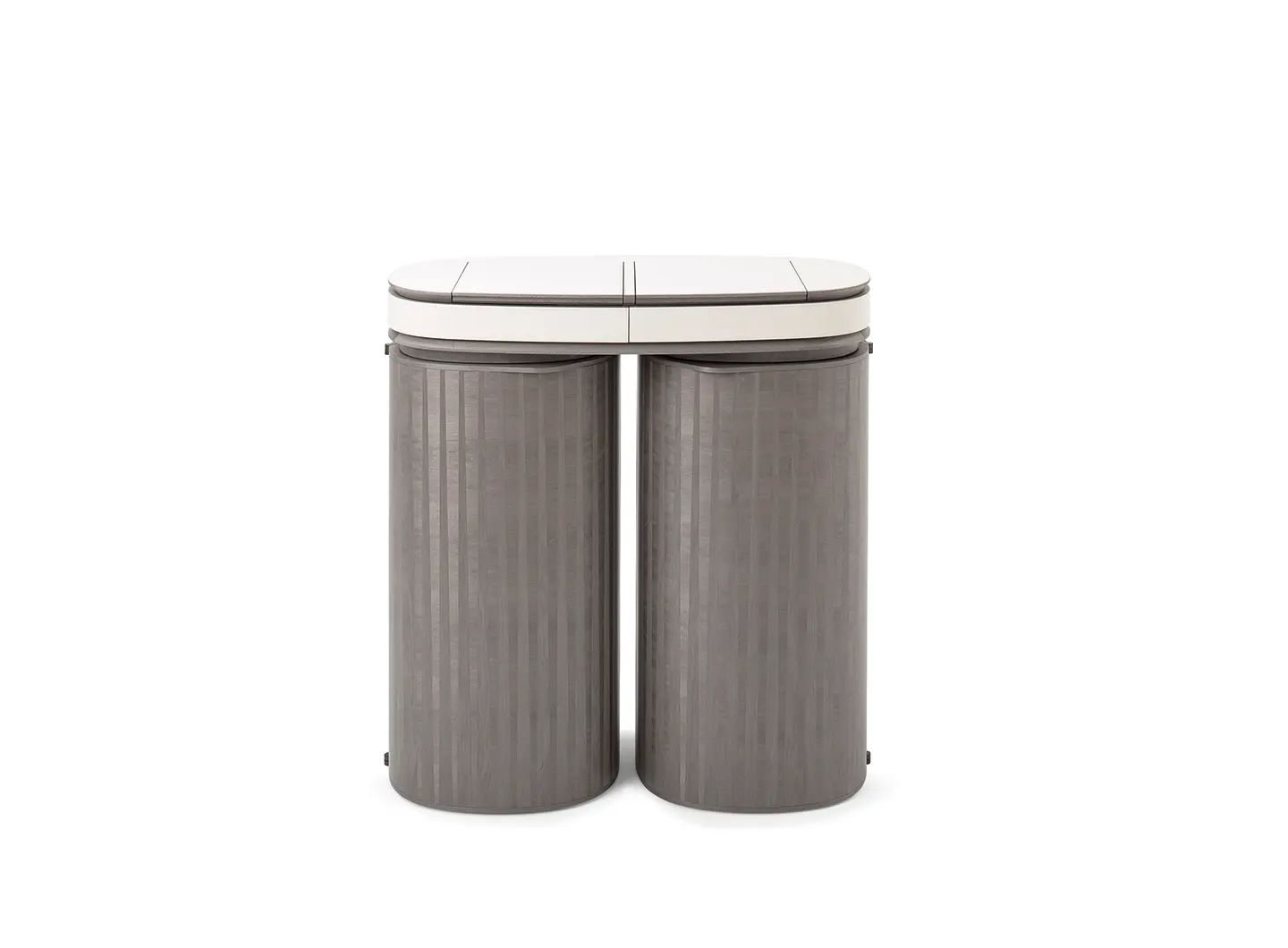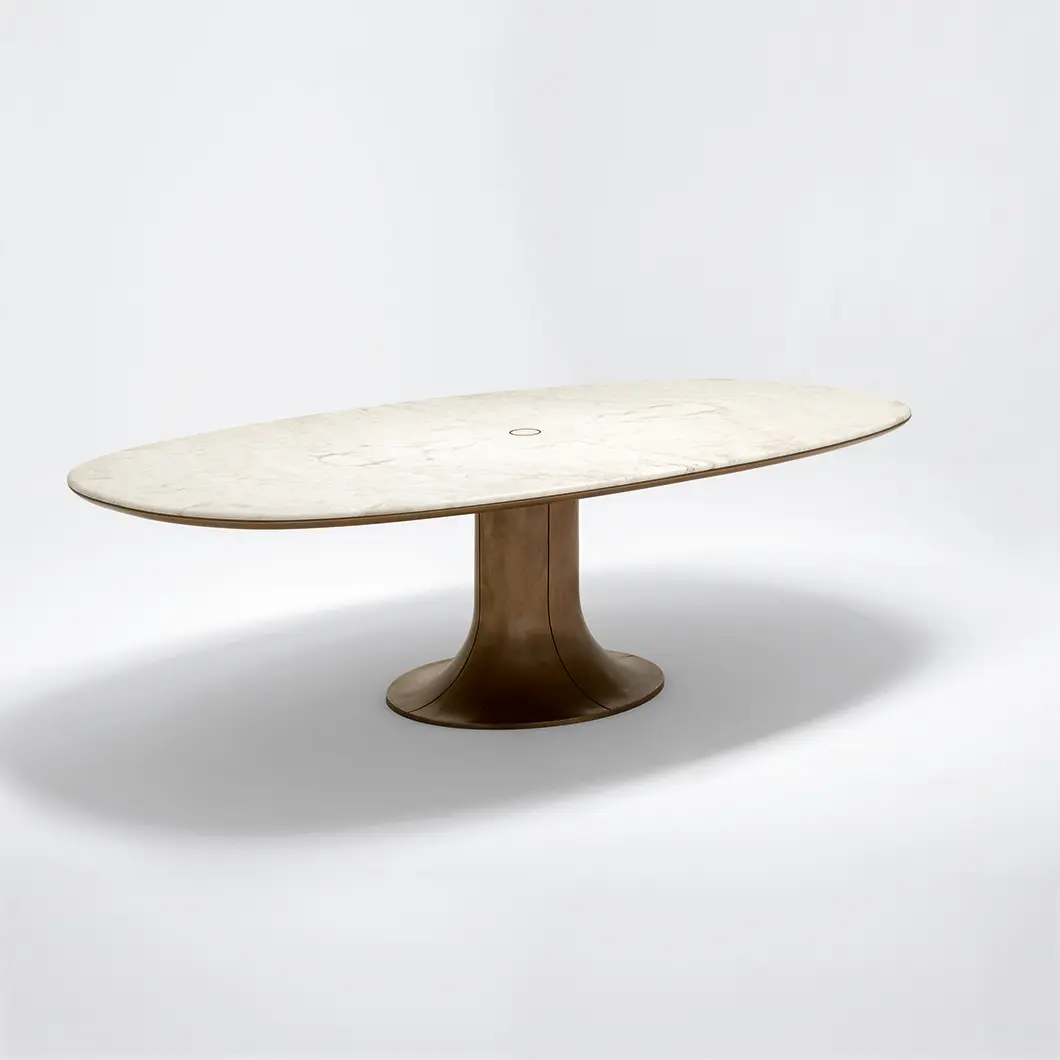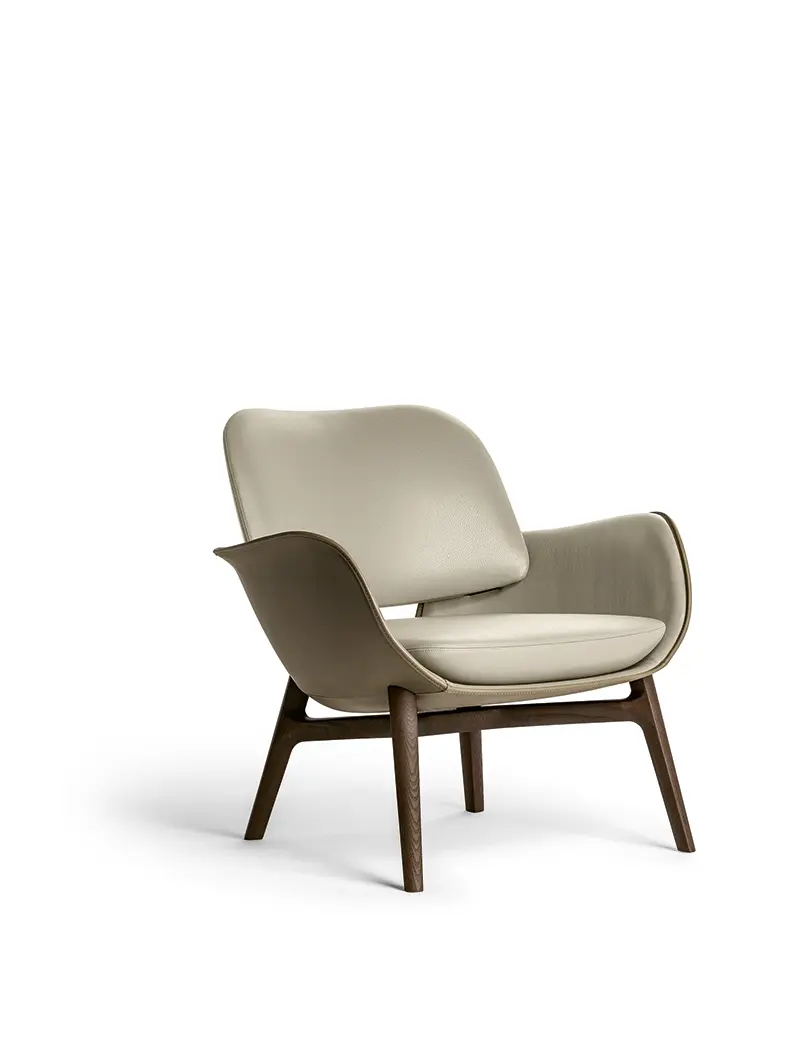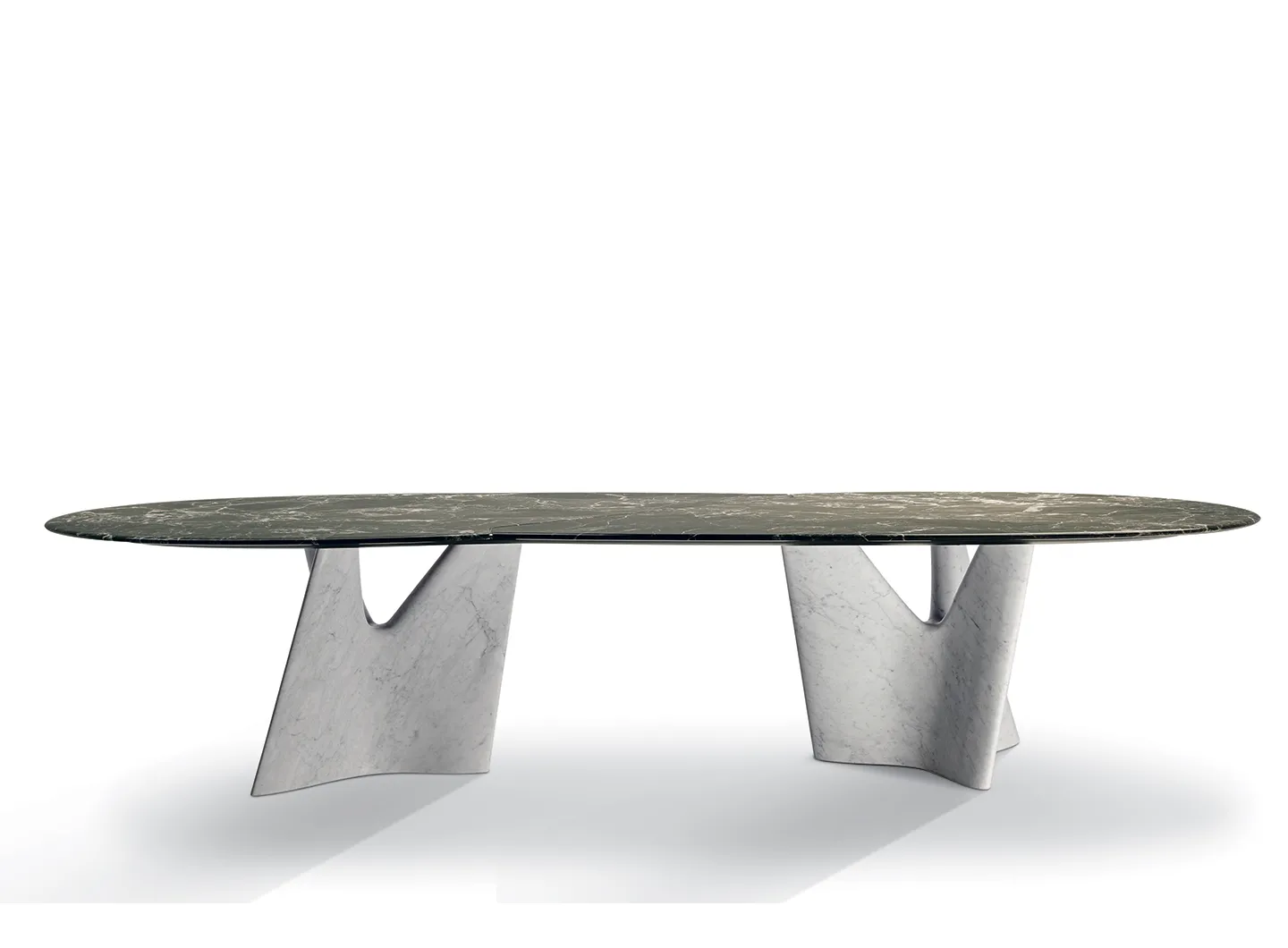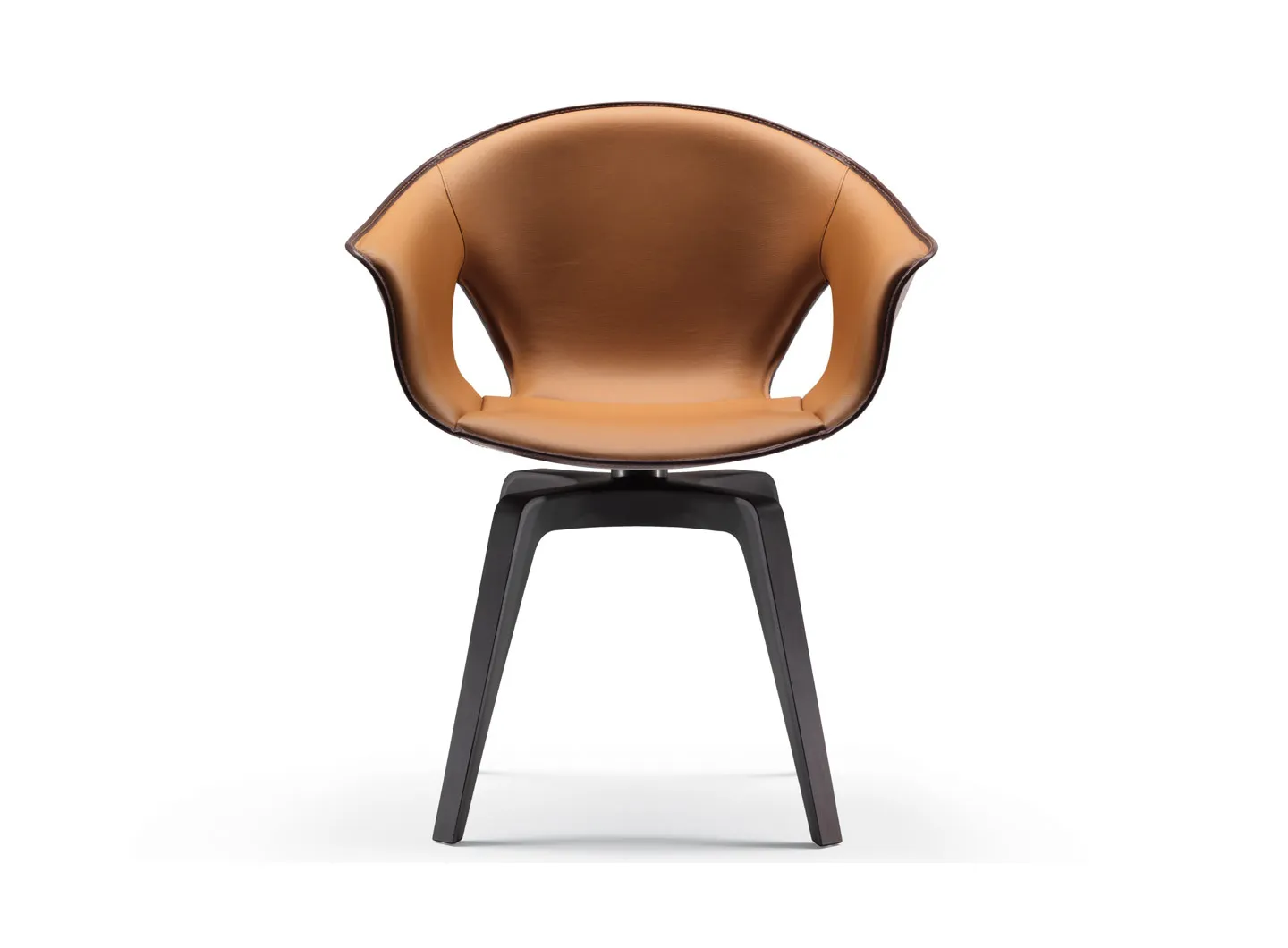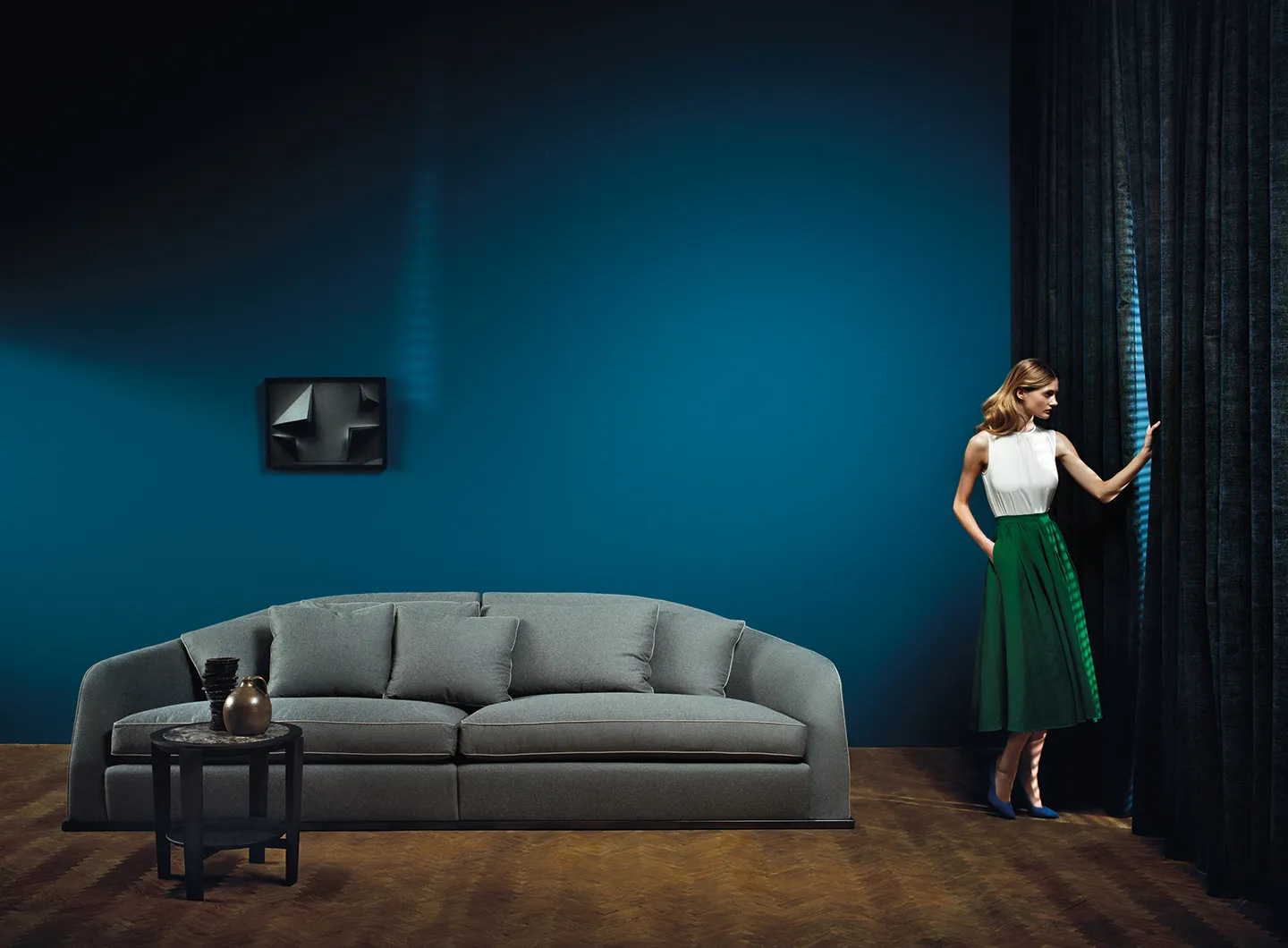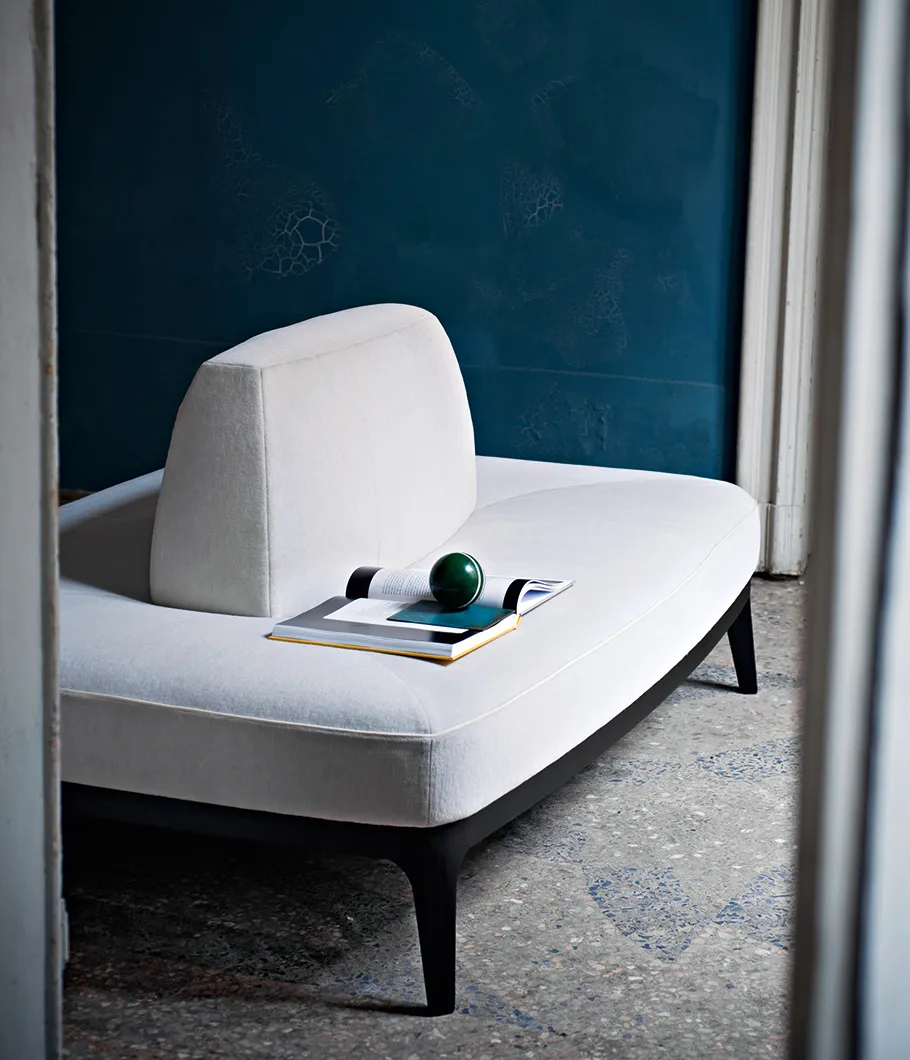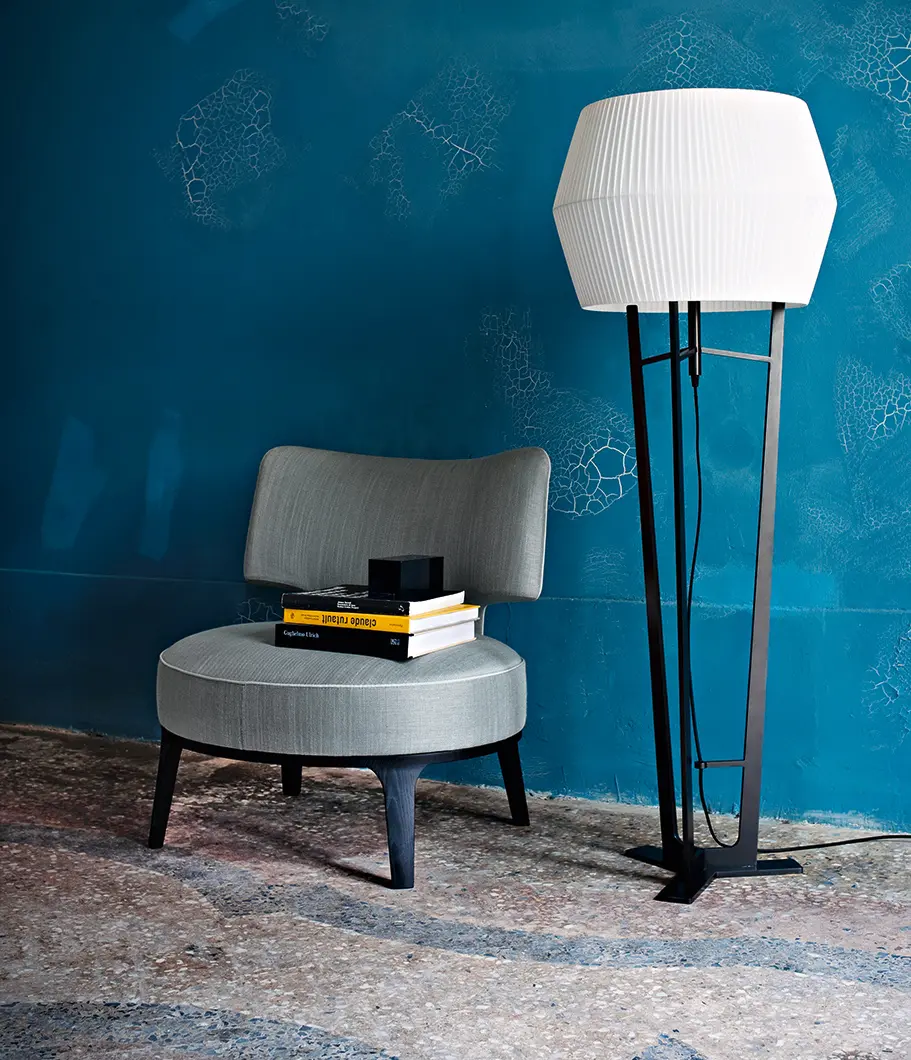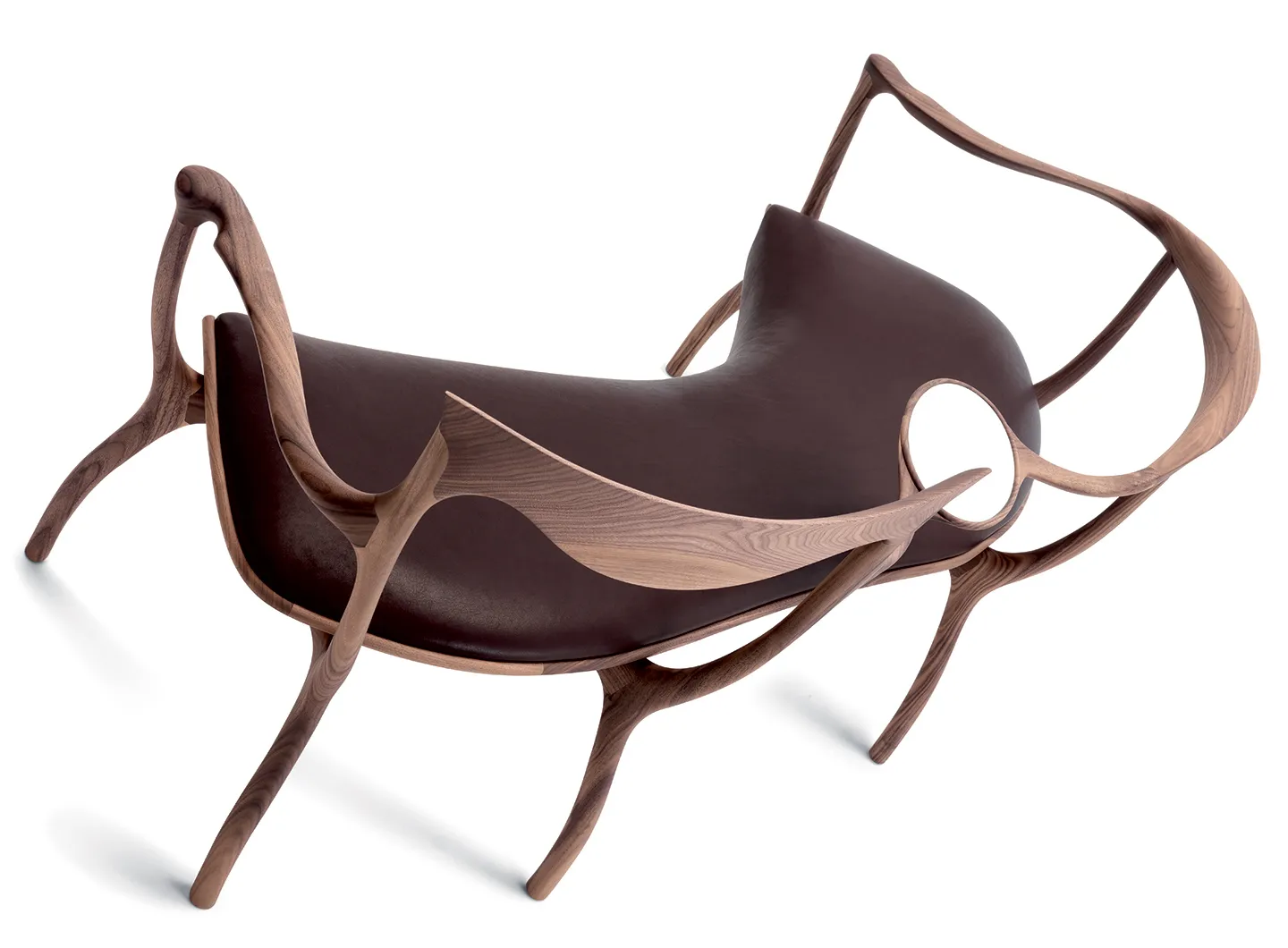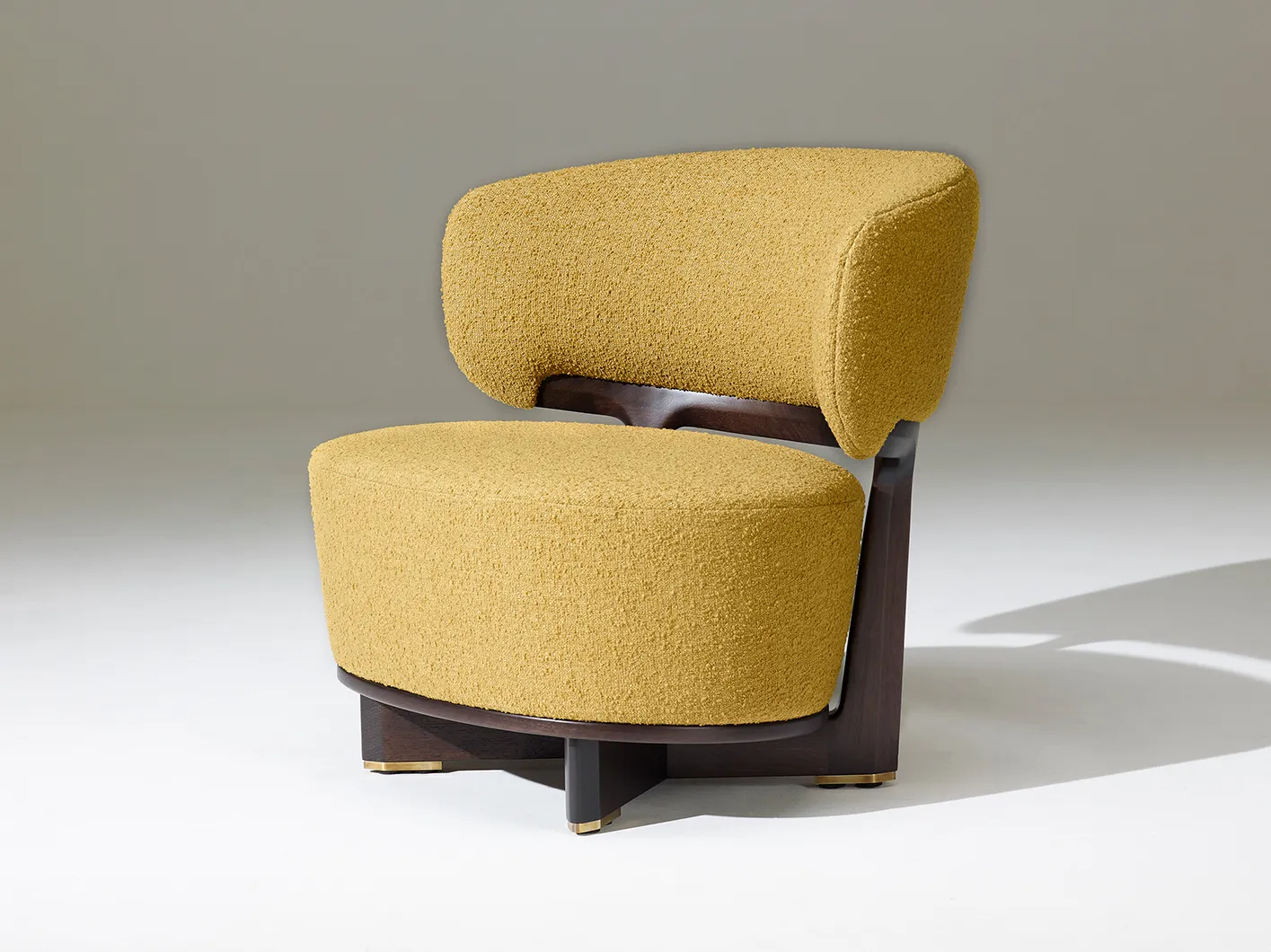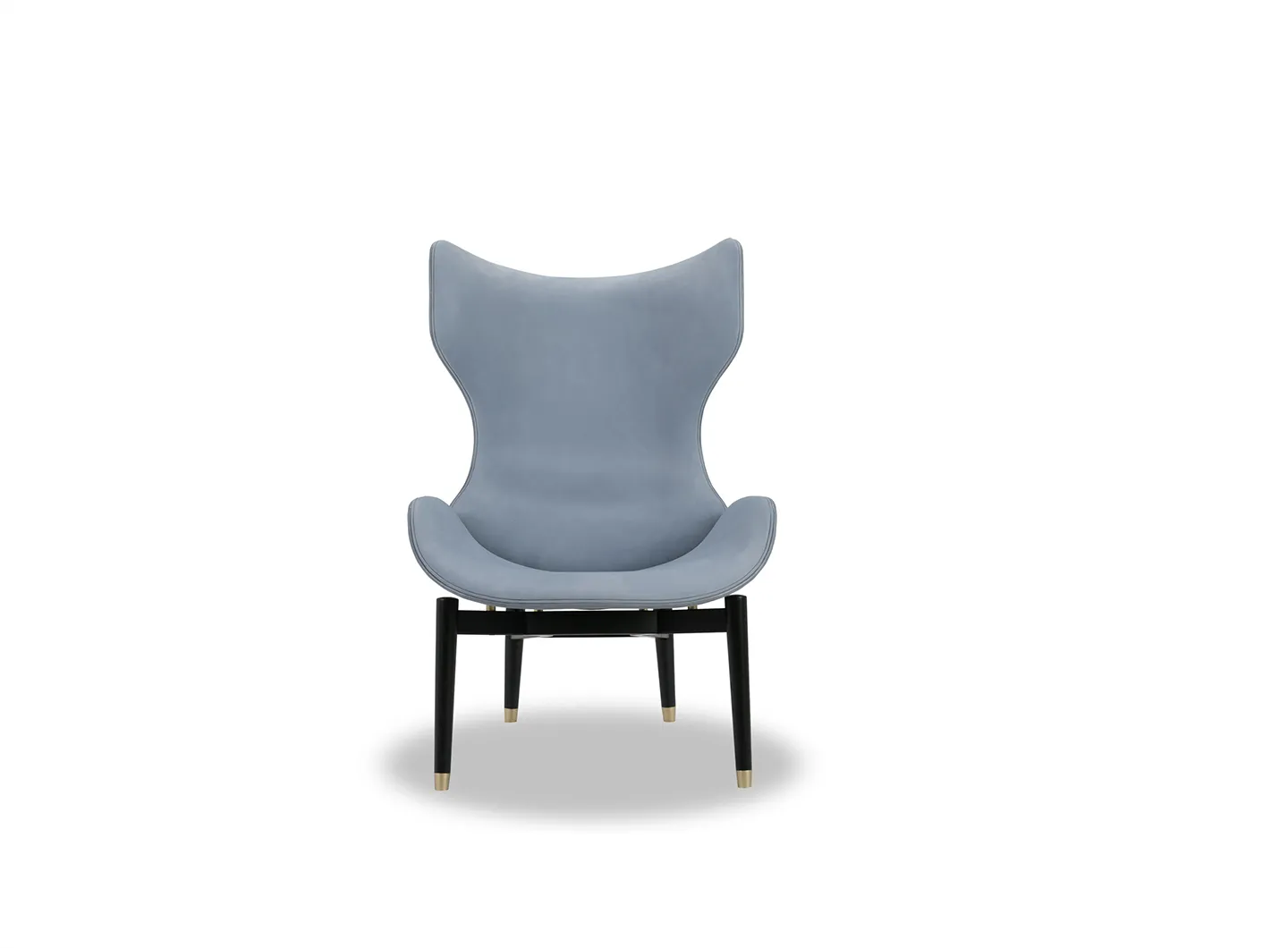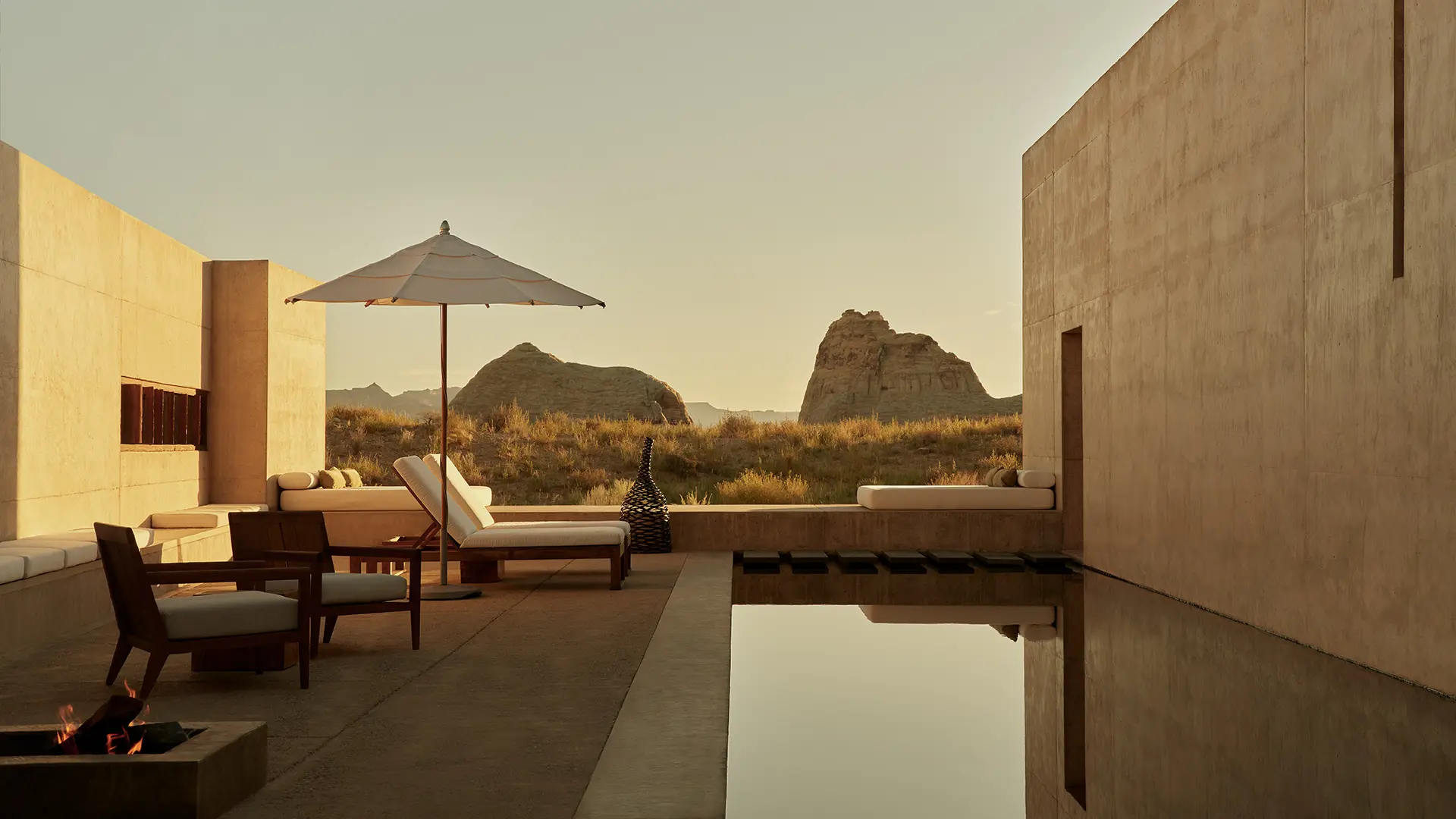From Japan to Norway, by way of India and the United States
Roberto Lazzeroni, designer by profession

Alfred sofa, Flexform
The run-up to supersalone. The Tuscan designer, who will be in Milan for the September event, tells us about himself: reflections on the future, old habits and “reasoned optimism.”
Precision, perfection and good looks: a year designing in smart working mode, supersalone on its way and new projects to showcase: Roberto Lazzeroni, the Tuscan designer who lives in a garden house in Pisa, tells us about his rituals, his thoughts for the future and his sentimental design.

I’ll be there in September, and I hope there will be lots of other people. I’m presenting a modular collection for Giorgetti, a new upholstered project with an extremely interesting organic design, with a particular style that deviates from the classical type. Giorgetti is a special company that continues to have a cross-cutting approach to the market: any product conceived for them has to have these characteristics. Then there will be an outdoor collection for Poltrona Frau, their first, made of teak with very subtle and extremely fine features.
I have to say that I think it could well be a stimulating formula, because for all of us it could mean a different way of narrating our products, not in a boring commercial way. Supersalone could become an opportunity for companies to narrate their stories with a more fascinating, less market-centric approach, through their products. On one hand there’s a huge question mark, on the other it could also become a regular thing.
It’s an event that overwhelms everyone, I certainly have a series of rituals that help me feel at home in Milan too. I often go to the Torre di Pisa restaurant and always stay in the same hotel. I often spend time at Fuorisalone because of its alternative vibe. Whereas the Salone sometimes feels like a slightly wrinkled elderly woman, celebratory and a bit pompous, with the Fuorisalone events the storytelling is never compressed. I remember when I started out as a designer and I was working for Gufram. It’s truly another world, full of experiments.
The Salone del Mobile is incredible every year, I’m not so keen on the consumerist idea of designing products specially for the occasion, when there might not be many left afterwards. We are slaves to a capitalist system that has been displaying its shortcomings for a while, though.
The situation got even worse with the pandemic. This focus on profit at all costs, which is also rather stupid, had to change. I remember years ago, in the 70s in Turin, there was a sort of Expo at which products were presented in an experimental way. The notion of being able to hold something different in tandem with a trade based Salone, where different narrations could be made, already existed.
I’d like to be optimistic and say that we’ve learnt something, but I fear that’s not the case. The pandemic has taught us that it’s not just ourselves that matter. We need to downsize our egos; we all think we’re more important than the next person. However, the pandemic has taught us that we’re all connected, joined together. You can’t solve individuals’ problems without solving the collective problems. The notion that we are above everything is endlessly stupid, even in design.
There’s been a proliferation of outdoor projects, as if we all feel the need to get back to nature, to the countryside, to a less constricted life. Let’s say that there’s been a rediscovery of nature, an element that will force us to reflect on how we design. I live in a house with a garden, it’s hard to tell where the indoors ends and the outdoors begins, where one space finishes and the other starts, so for me the relationship with nature has always been fundamental. Smart working – which I’ve unfortunately had the opportunity to experience – will also lead to changes to our workspaces.
I have a special relationship with the product, with a packed catalogue of forms and familiarity with the past, my relationship is sentimental. My projects are all linked by more than just functionality, more sensitive. The objects can be touched, looked at, they have more feminine characteristics. Sentimentally they draw on things from the past, they could be banal citations, a retrieval, a sentimental attachment to a particular period, to an era. However, there’s nothing nostalgic about them, everything is contemporary.
The world will keep on turning and we will come up with solutions. Although it might seem otherwise, I am deeply optimistic, otherwise I couldn’t do this job with commitment and conviction. Optimism comes from my daily work, over and above nostalgia and sentimentality. I’d call it reasoned optimism, to paraphrase someone. We’re moving forward by taking our work seriously, in pursuit of perfection, precision and good looks.
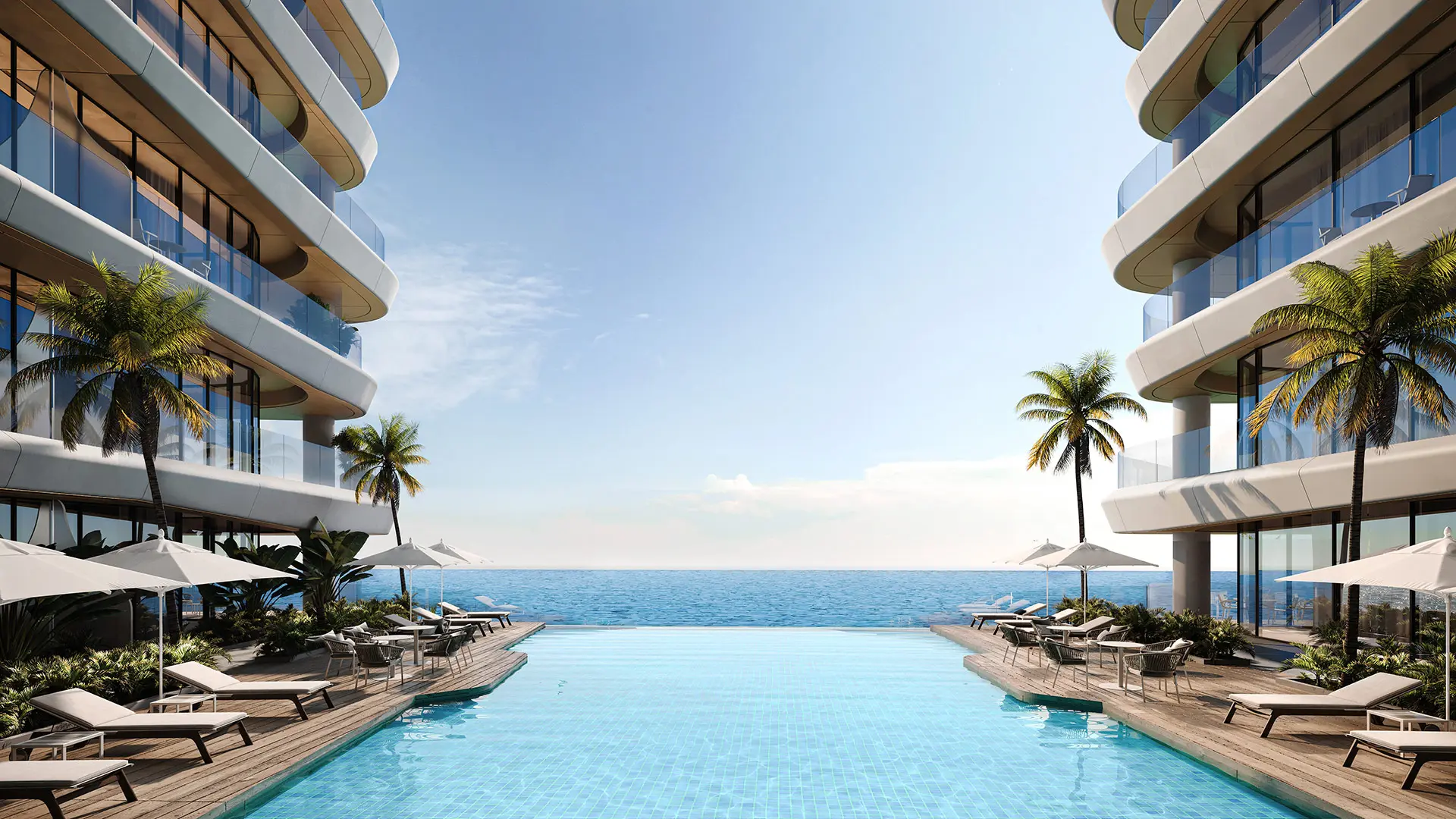
Branded residences: the market has tripled, so what are the opportunities?
The global race in figures: fashion, automotive and watchmaking join the hotel industry at the new frontier of exclusive living. Furniture brands also have a role to play

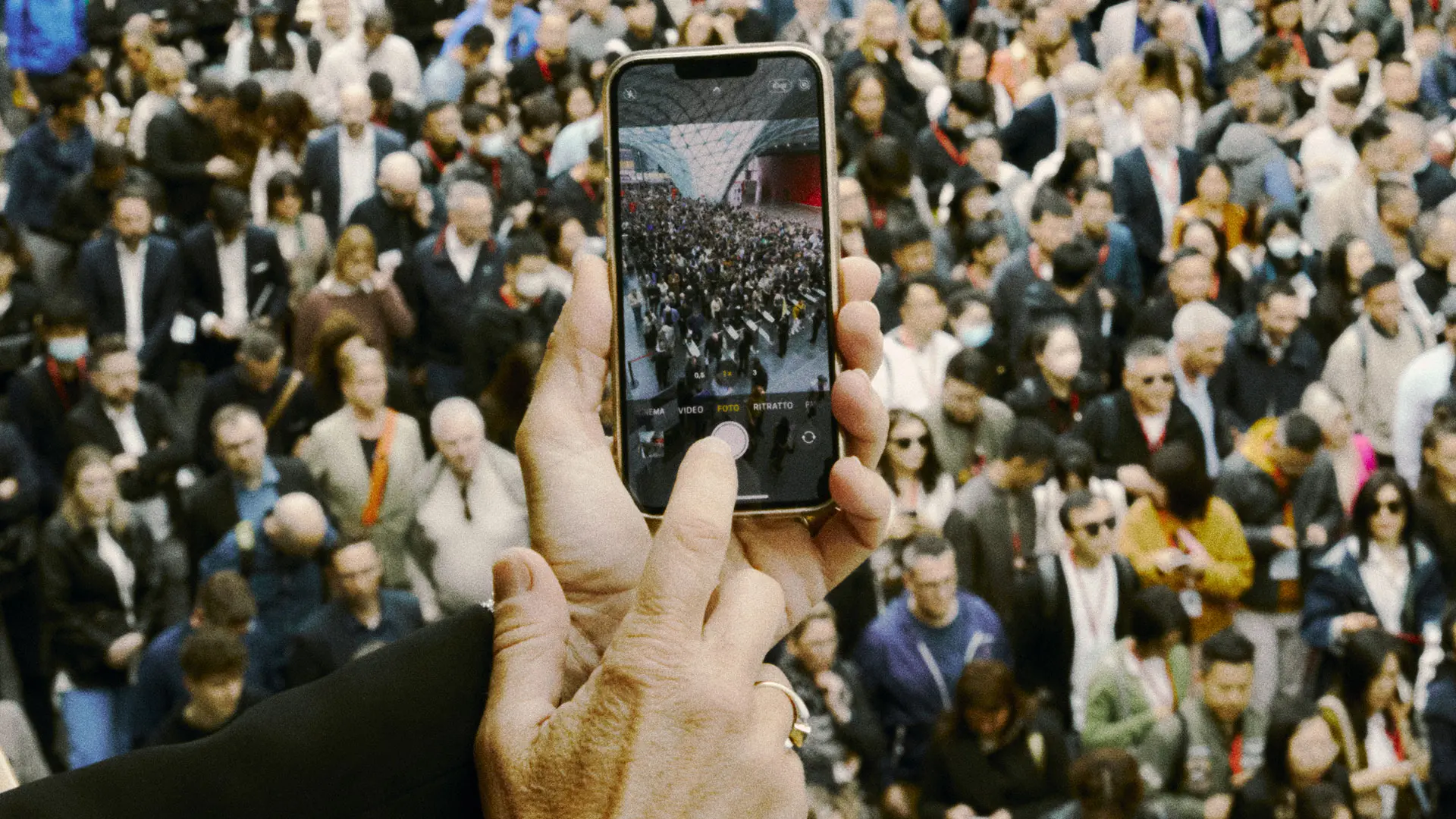
The Milan Design (Eco) System Working Groups are under way. Focus for 2025: the culture of design
The Salone del Mobile.Milano, in collaboration with the Design Department of the Politecnico di Milano, will launch the second edition of the Milan Design (Eco) System Working Groups on 25th September, providing an opportunity for institutions and industry experts to swap ideas and contribute to the 2025 edition of the Salone Annual Report



